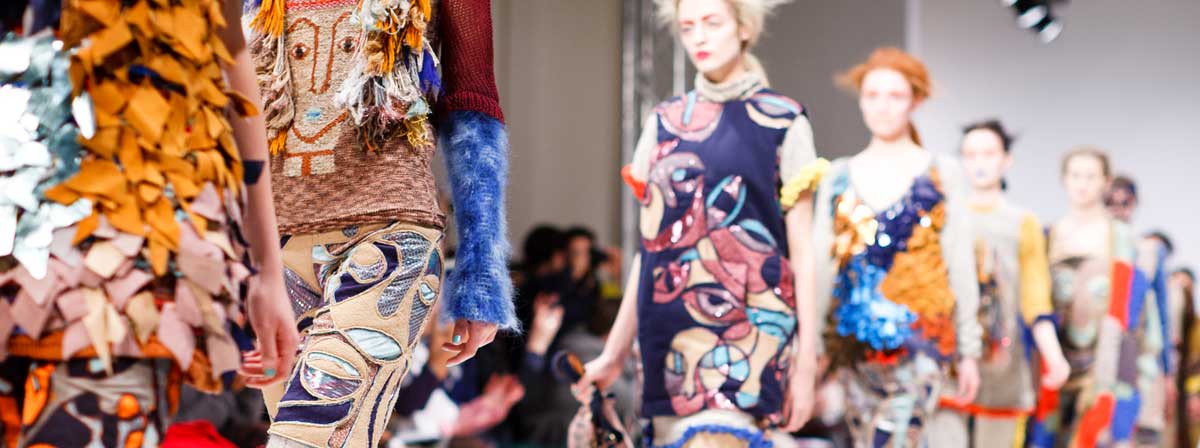How To Become A Fashion Designer

Fancy becoming the next Marc Jacobs or Donna Karan? The good news is that you don’t have to be a celebrity or have lots of wealth to become a fashion designer. You just need talent, enthusiasm and the knowledge of which steps to take.
Why Study To Be A Fashion Designer?
The fashion world is widely recognised as being one of the most fun industries to work in. But it’s also fiercely competitive and arguably as fast-paced as the business world. If all this sounds like just the ticket and your artistic mind is bursting with creative ideas, studying to be a fashion designer is certainly a fab idea.
There are many perks to being a fashion designer. You get to do something you love whilst working in a glamorous industry. There are plenty of opportunities to step outside of your comfort zone, which makes this job perfect for anyone wanting a challenge. The industry is always changing, so you need to be ready to keep up. As a fashion designer, you’ll get to research future trends, come up with your own designs, and visit trade shows.
Being a fashion designer also gives you the chance to meet lots of like-minded, talented people who are generally outgoing and are able to open up plenty of opportunities for you.
Oh, and did we mention that one day a top celebrity might end up wearing one of your creations? Becoming a fashion designer is hard work, but that has to make it all worth it.
Becoming A Fashion Designer
Breaking into the fashion designing industry is exciting, but it isn’t easy. To give you a much better chance of entering this glamorous career, the number one thing to do is to take a degree in fashion design.
A fashion design degree strengthens your knowledge in this area, and help to build an understanding of what a career in fashion will involve. Taking one should be the first thing you do on your road to becoming the next big thing in fashion.
Before applying for a fashion design degree, there are a few key skills and attributes that it would be good to possess. Fashion designers are very artistic, creative and imaginative people are who good at communicating the ideas in their heads, as well as putting them down on paper. Fashion designers also have an eye for detail, and understand colour, fabric and texture.
Once you have graduated from university, the next step is to put together your own professional portfolio. You will create a portfolio while at university, but you should also work on your own projects away from the classroom. You can then use your portfolio to apply for an internship or work placement, which are great ways of getting your foot in the door. When you intern, you can add to your list of contacts and it maybe even land your first proper job in the industry.
Studying To Be A Fashion Designer
You’ll probably never be as free to express yourself through your designs as you will at university. A fashion design degree arms you with the knowledge and expertise to become a fashion designer while honing your craft, and it also encourages you to be as creative as possible.
A number of top design schools up and down the UK offer fashion design degrees, and it’s a good idea to do some proper research before making a final decision. The most sought-after schools are those who can name top fashion designers among their alumni. Some universities, meanwhile, offer combined degrees with other subjects, while others focus on particular areas.
Whichever university you choose to study at, the exact course content will depend on their particular program. Modules you can expect to study include:
- Research and design development
- Design history
- Design management
- Marketing creativity
- Fashion innovation
A fashion design degree lasts for three years when studied full-time, and you will be assessed on your portfolios and presentations, as well as practical logbooks and – sometimes but not always – exams and essays. There will also be a final year dissertation to write.
Entry Requirements
To be considered for a fashion design degree, A-Levels of ABB are generally required in an art and design related subject. Your application may be considered if you are taking an A-Level in Media Studies instead of art or design, while any GCSE’s you have in art or design will also strengthen your application.
If you are taking a BTEC, universities look out for DDM’s or higher.
An art foundation course does not usually count as part of entry requirements, but it is looked upon favourably by universities, and may be beneficial if you don’t posses the entry requirements to go straight onto the degree.
Start your journey to becoming a fashion designer by searching for fashion degrees now!